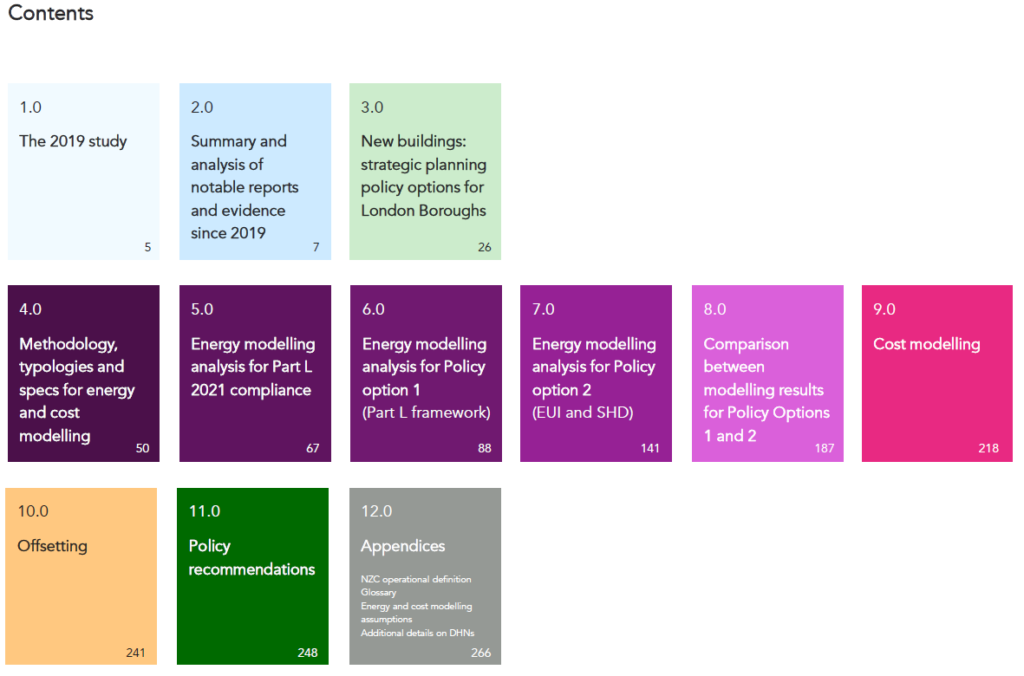Delivering Net Zero
This blog post is a hymn to collaboration.
Late last year Inkling were delighted to be invited to collaborate with four other consultancies on a piece of work commissioned by a consortium of 18 London Boroughs. In light of a revision to Part L, the boroughs worked together to procure this research to help inform planning policy targets on operational energy. The four consultancies we worked with were Etude, Levitt Bernstein, Introba and Currie & Brown.


The purpose of the study was to explore two separate planning policy options; one based on standard energy policy, reflecting a % reduction in regulated carbon emissions compared with Part L 2021; and a second based on absolute energy targets (EUI in kWh/m²/yr) requiring predictive energy modelling. It looked at eight different building archetypes – four domestic and four non-domestic – each modelled under three different fabric and ventilation specifications and four different servicing options. The work builds on a previous study, extending the scope and updating it for the latest Building Regulations.

The final report is huge (over 300 pages) and gives the detailed results for each model and all the scenarios tested, but is broken down into sections for easier consumption. The executive summary is seven pages and well worth a look to whet the appetite, while there is also a ‘20 Minute Summary’ for those seeking a bit more detail.
It’s hard to boil down such an extensive study but the outcomes include demonstrating how changes within Part L 2021 make simple CO2 percentage reduction targets less useful than previously, and strengthen the case for requiring predictive energy modelling and absolute EUI targets that can be verified in use.
The full reports have now been published and are free to download from the following local authority websites:
Inkling contributed to the study by modelling two of the non-domestic archetypes – the school and the hotel – for both policy options. This was a challenging project with an ambitious scope, but we relished the opportunity to collaborate with the other consultants and have been blown away by the final outputs (Etude and Levitt Bernstein are due all the credit for the quality and beauty of the final report, and especially Thomas at Etude for the colossal feat of coordination). It has felt important to play a part in adding to the limited evidence base in this area.
We fervently hope this work will stimulate more research and analysis to build on the findings, and encourage more planning departments to set more ambitious operational energy targets to accelerate the transition towards a net zero built environment.

 Posted by Susie Diamond
Posted by Susie Diamond- Posted in Publications, Research
 Jul, 12, 2023
Jul, 12, 2023 Comments Off on Delivering Net Zero
Comments Off on Delivering Net Zero

 Susie: 07972 263 676
Susie: 07972 263 676
 Join Us On In.com
Join Us On In.com
